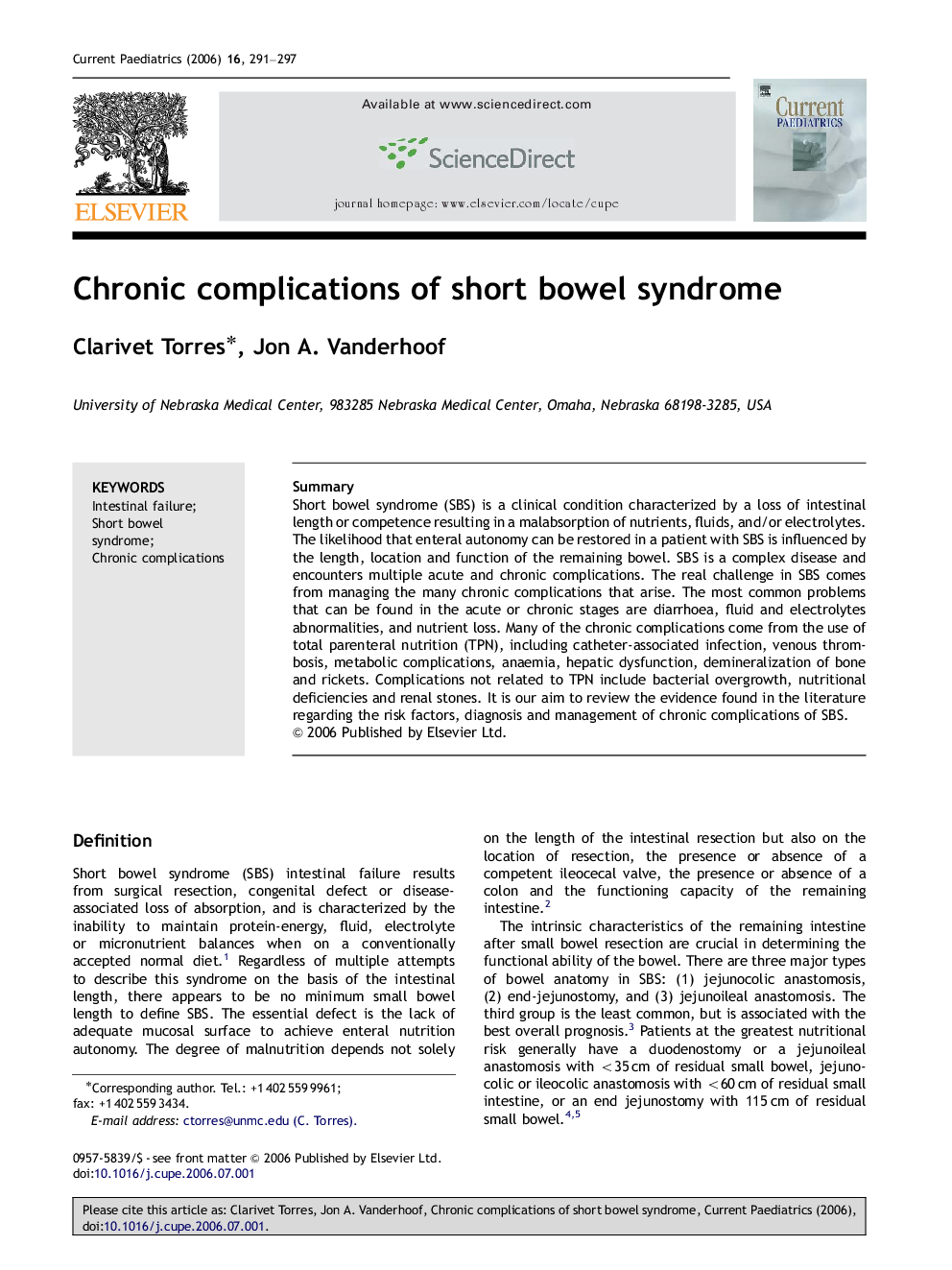| Article ID | Journal | Published Year | Pages | File Type |
|---|---|---|---|---|
| 4152233 | Current Paediatrics | 2006 | 7 Pages |
SummaryShort bowel syndrome (SBS) is a clinical condition characterized by a loss of intestinal length or competence resulting in a malabsorption of nutrients, fluids, and/or electrolytes. The likelihood that enteral autonomy can be restored in a patient with SBS is influenced by the length, location and function of the remaining bowel. SBS is a complex disease and encounters multiple acute and chronic complications. The real challenge in SBS comes from managing the many chronic complications that arise. The most common problems that can be found in the acute or chronic stages are diarrhoea, fluid and electrolytes abnormalities, and nutrient loss. Many of the chronic complications come from the use of total parenteral nutrition (TPN), including catheter-associated infection, venous thrombosis, metabolic complications, anaemia, hepatic dysfunction, demineralization of bone and rickets. Complications not related to TPN include bacterial overgrowth, nutritional deficiencies and renal stones. It is our aim to review the evidence found in the literature regarding the risk factors, diagnosis and management of chronic complications of SBS.
